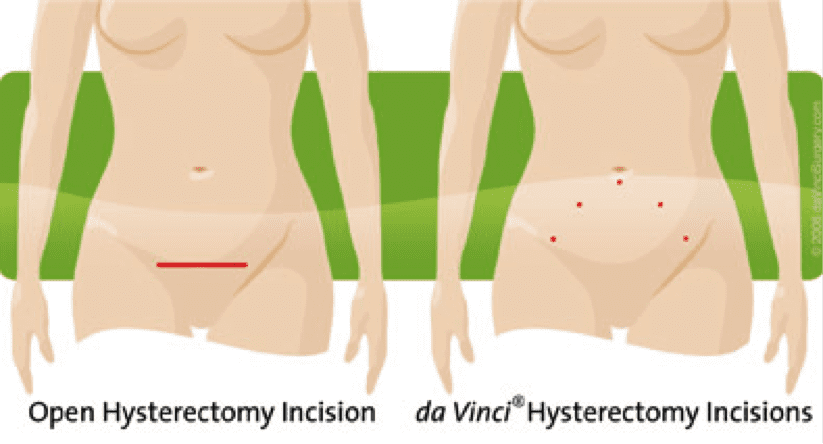Gynecologic Cancers
The most common types of gynecologic cancers are cervical, endometrial (uterine) and ovarian cancer. The specific type of cancer a woman has and how advanced it is, will determine her available treatment options. Women with early stage gynecologic cancer are often treated with hysterectomy – the surgical removal of the uterus. In this procedure, the doctor may also remove the ovaries, fallopian tubes and/or select lymph nodes. Hysterectomy is the second most common surgical procedure for women in the US., and an estimated one third of all U.S. women will have a hysterectomy by age 60.
If your doctor recommends hysterectomy, you may be a candidate for robotic surgery at Holy Cross Health in Fort Lauderdale, Florida. Robotic surgery is one of the most effective, least-invasive treatment options for a range of uterine conditions. Robotic Hysterectomy is performed using the da Vinci™ Surgical System, which enables Holy Cross surgeons to perform with unmatched precision and control – using only a few small incisions.

The Robotic Hysterectomy at Holy Cross offers numerous potential benefits over traditional approaches to vaginal, laparoscopic or open abdominal hysterectomy, particularly when performing more challenging procedures like radical hysterectomy for gynecologic cancer. Potential benefits include:
- Significantly less pain
- Less blood loss
- Fewer complications
- Less scarring
- A shorter hospital stay
- A faster return to normal daily activities
In addition, da Vinci provides the surgeon with a superior surgical tool for dissection and removal of lymph nodes during cancer operations, as compared to traditional open or minimally invasive approaches. da Vinci Hysterectomy also allows your surgeon better visualization of anatomy, which is especially critical when working around delicate and confined structures like the bladder. This means that surgeons have a distinct advantage when performing a complex, radical hysterectomy involving adhesions from prior pelvic surgery or non-localized cancer, or an abdominal hysterectomy.
As with any surgery, these benefits cannot be guaranteed, as surgery is both patient- and procedure-specific. While gynecologic surgery performed using the da Vinci® Surgical System is considered safe and effective, it may not be appropriate for every individual. Always ask your doctor about all treatment options, as well as their risks and benefits.
Contact a physician who performs minimally invasive robotic gynecologic surgery:
